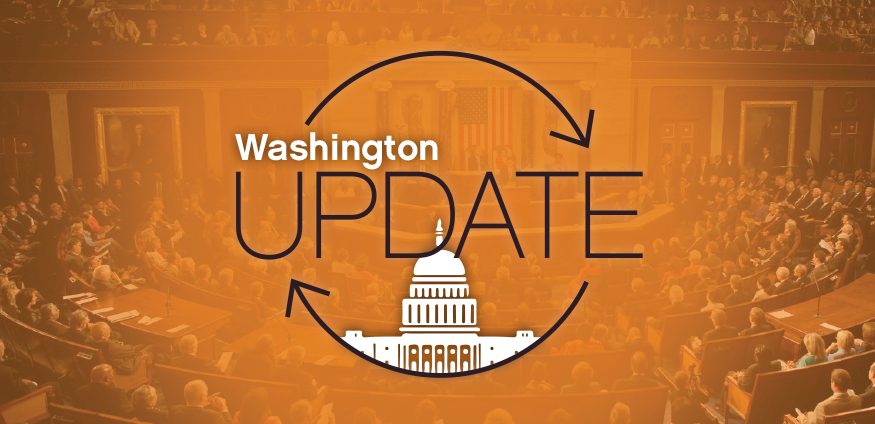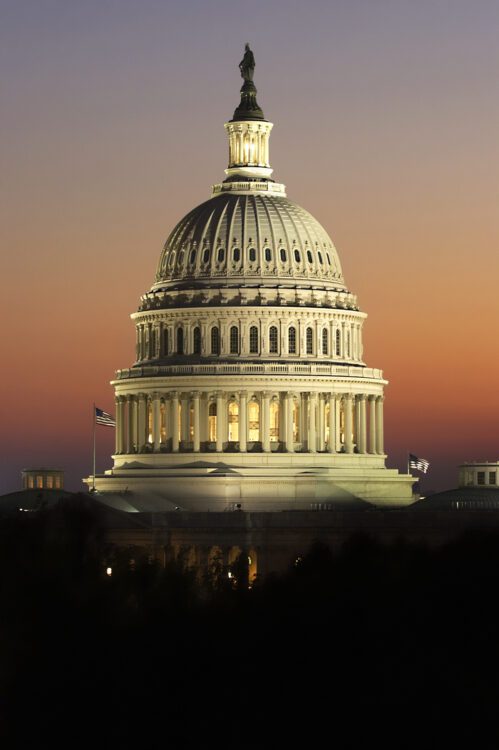- Debate continues behind closed doors in the House over the fiscal year 2018 budget spending levels. The House Budget Committee had planned to release its budget proposal in June, but due to disagreements among Republicans, the committee postponed releasing its budget resolution until after the Fourth of July recess.
- We expect Budget Committee Chair Diane Black’s (R-Tenn.) budget resolution to propose major tax cuts, increased funding for defense appropriations, and $200 billion in fast-tracked mandatory spending cuts.
- Those cuts would likely come from programs, such as SNAP (formerly known as food stamps), TANF, and Medicaid. A major point of contention among Republicans is over these mandatory spending cuts.
- Moderate Republicans are objecting to the $200 billion in cuts while conservative Freedom Caucus members are calling for deeper cuts closer to $500 billion. Moderate Republicans are also asking for a bipartisan agreement to raise the discretionary spending caps currently in place.
- Despite the lack of a budget resolution (which sets the topline appropriations funding levels), the House Appropriations Committee is continuing its work and plans to mark up several appropriations bills this week. The list of bills includes Agriculture and State/Foreign Operations.
- The Agriculture Appropriations bill being considered on Wednesday was released the week of June 26. If it passes out of the full committee this week, it could come to the House Floor later this month. It includes money for yearly funded domestic nutrition programs as well as international food aid programs: WIC received $6.15 billion in funding, $200 million less than fiscal year 2017 but enough to cover current caseload, which has been declining. The bill also rescinds $600 million in unused funds. These reductions are not expected to impact current caseload. Summer EBT pilot programs continue to receive $23 million in funding. Food for Peace Title II Grants received $1.4 billion in funding. McGovern-Dole received $185 million in funding.
- The State/Foreign Operations Appropriations bill will be marked up in the House subcommittee on Thursday. Funding levels are unclear, as there is no publicly available topline budget number. However, we are hopeful that the numbers will be closer to fiscal year 2017 enacted levels, rather than the Trump administration’s request, which zeroed out or cut several international development programs.
- There is a Senate Farm Bill hearing on international programs on Thursday. We don’t have the witness list yet, but we are working on questions for the record that reflect positively on food-aid programs and on the reforms that were included in the last farm bill. We are also working on joint testimony to submit.
Health Care
- Members of Congress received an earful from constituents last week about the Better Care Reconciliation Act (BCRA) during their Fourth of July recess. It seems Senate Majority Leader Mitch McConnell is still working to get the needed votes to pass the BCRA out of the Senate.
- We know McConnell has sent updates about Medicaid cuts, tax cuts, and additional changes to the marketplace to the Congressional Budget Office to score. We have heard that McConnell wants to push for a vote next week, and certainly before the August recess.
- If the Senate is unable to vote on a repeal bill next week, then it is possible they might cancel some of August recess in order to gain the necessary votes for repeal. Some GOP Senators have expressed that they believe a repeal effort is “dead” and that they might have to work with Democrats on an Obamacare fix instead of a full repeal.
- We are still focusing on these senators: Sens. Susan Collins (Maine), Dean Heller (Nev.), Lisa Murkowski (Alaska), Rob Portman (Ohio), Jerry Moran (Kan.), and Shelley Moore Capito (W.Va.)
Fresh Bread Ask
The House Budget Committee continues to debate a budget proposal behind closed doors this week that could include at least $200 billion in fast-tracked cuts to low-income programs. Call (800-826-3688) or email your representative and senators and urge them to oppose cuts to critical programs, such as SNAP, Medicaid, refundable tax credits, and international development.



